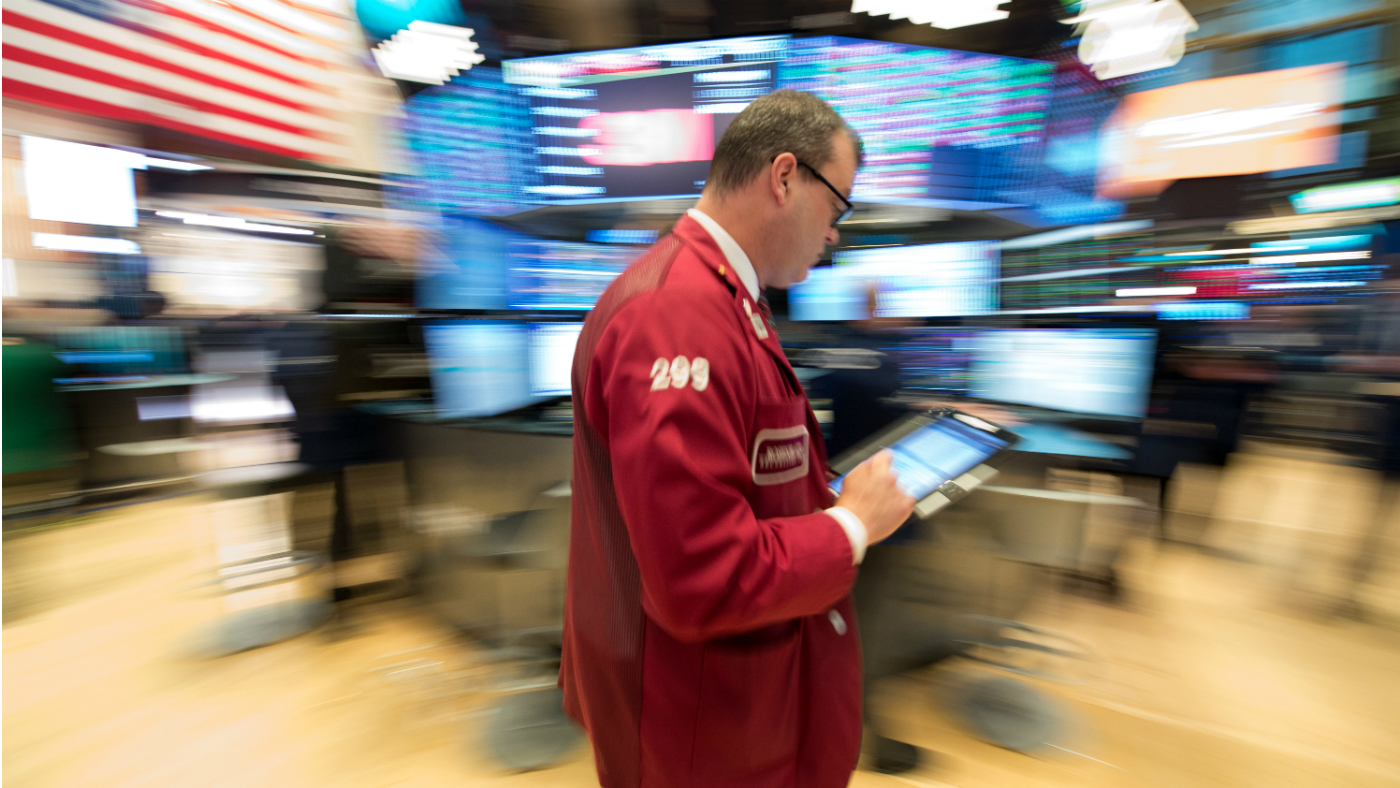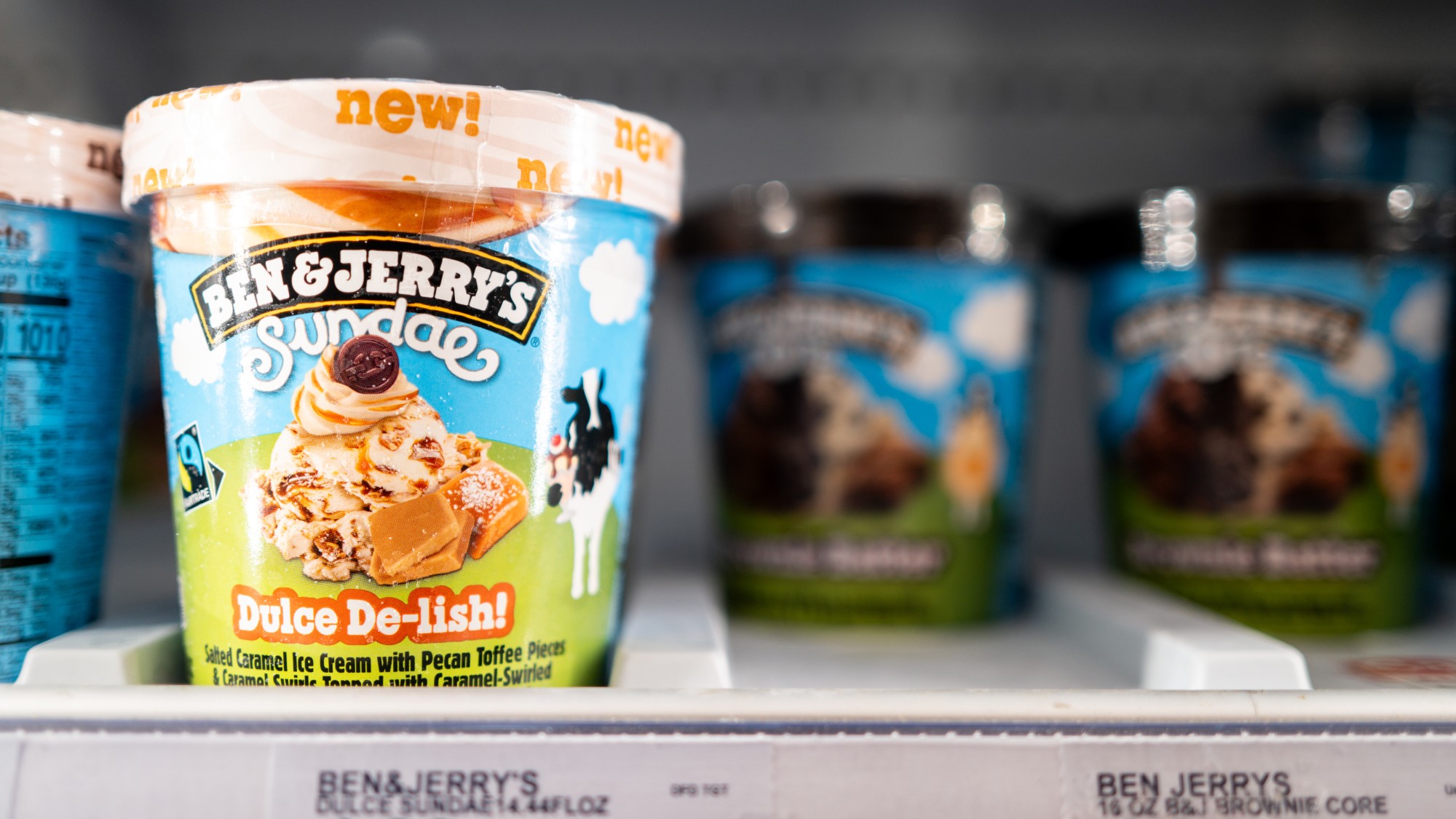Fact check: the truth about the US economy
Trump says unemployment is at a record low and economy is strongest ‘ever’ – is he right?

A free daily email with the biggest news stories of the day – and the best features from TheWeek.com
You are now subscribed
Your newsletter sign-up was successful
When Donald Trump announced his candidacy back in 2015, he promised the American public that he would be “the greatest jobs president that God ever created”.
Three years on, his rhetoric remains as hyperbolic as ever. But do the president’s latest bullish claims about the US economy and employment levels stack up?
What has Trump said?
The Week
Escape your echo chamber. Get the facts behind the news, plus analysis from multiple perspectives.

Sign up for The Week's Free Newsletters
From our morning news briefing to a weekly Good News Newsletter, get the best of The Week delivered directly to your inbox.
From our morning news briefing to a weekly Good News Newsletter, get the best of The Week delivered directly to your inbox.
In a series of tweets marking 500 days since he took office, Trump said Americans are currently enjoying the best economy and job market “EVER”.
“In many ways this is the greatest economy in the HISTORY of America and the best time EVER to look for a job!” he tweeted earlier this month.
The White House also issued a statement crediting the president with strengthening the US economy and “generating new opportunity and prosperity” for American workers.
The administration claims that nearly three million jobs have been created since Trump took office and that the unemployment rate has dropped to 3.8% - the lowest rate since April 2000.
A free daily email with the biggest news stories of the day – and the best features from TheWeek.com
“The job market right now is about as strong as I’ve ever seen,” said Kevin Hassett, head of Trump’s Council of Economic Advisers.
How did the press respond?
“As ever with Trump, many of these boasts are inaccurate or misleading,” says The Guardian’s Adam Gabbatt.
According to Gabbatt, the rate of job creation under Trump is actually slower than the last four years under Barack Obama, and the unemployment rate is declining in part because large numbers of people are leaving the workforce rather than getting jobs.
The Washington Post’s Heather Long agrees that some of the numbers don’t add up. “This is a good economy and Trump deserves some credit for it,” she says. “But calling it the ‘greatest ever’ goes too far.”
What are the facts?
Unemployment: According to the latest statistics from the US Department of Labor, the unemployment rate edged down from 3.9% in April to 3.8% last month – the lowest rate for 18 years. If, as many economists are predicting, the rate drops by another tenth of a point, it will be the lowest since 1969.
“That’s encouraging, yet unemployment was lower right after the Second World War, when it fell as low as 2.5% in 1953,” CBS News says. “The 1960s also boasted sever periods of lower unemployment.”
Employment: In April, FactCheck.org calculated that just over 2.5 million jobs have been created during the Trump administration. “That’s steady, solid growth to be sure, continuing an unbroken chain of monthly gains in total employment that started in October 2010,” the non-partisan website says.
“But the average monthly gain under Trump is 181,000 jobs, which is nearly 17% below the monthly average of 217,000 during Obama’s second term.”
Analysts also point out that wage growth is relatively flat. It is “still hovering around 2.6 to 2.8%, which is barely above inflation”, the Post’s Long says. “That’s far short of the 4% wage growth during much of the 1990s.”
The economy: Gross domestic product – the most wide-ranging measure of economic activity - increased at an annual rate of 2.2% in the first quarter of 2018, according to the US government’s Bureau of Economic Analysis.
Although economists expect that growth to continue this year, current growth levels are significantly less than 4% to 6% annual rate that Trump has pledged to achieve. It also falls short of growth witnessed in the post-Second World War era, the 1980s and the 1990s, CBS News reports.
Is Trump telling the truth?
Few experts would disagree that Trump is presiding over a strong economy. However, it is not growing at the rate that he promised and it cannot be said to be the greatest economy in US history.
And while the White House is correct that unemployment has dropped to the lowest level in nearly two decades during his presidency, it has not yet reached a record low.
-
 The ‘ravenous’ demand for Cornish minerals
The ‘ravenous’ demand for Cornish mineralsUnder the Radar Growing need for critical minerals to power tech has intensified ‘appetite’ for lithium, which could be a ‘huge boon’ for local economy
-
 Why are election experts taking Trump’s midterm threats seriously?
Why are election experts taking Trump’s midterm threats seriously?IN THE SPOTLIGHT As the president muses about polling place deployments and a centralized electoral system aimed at one-party control, lawmakers are taking this administration at its word
-
 ‘Restaurateurs have become millionaires’
‘Restaurateurs have become millionaires’Instant Opinion Opinion, comment and editorials of the day
-
 Currencies: Why Trump wants a weak dollar
Currencies: Why Trump wants a weak dollarFeature The dollar has fallen 12% since Trump took office
-
 TikTok: New owners, same risks
TikTok: New owners, same risksFeature What are Larry Ellison’s plans for TikTok US?
-
 Trump wants a weaker dollar, but economists aren’t so sure
Trump wants a weaker dollar, but economists aren’t so sureTalking Points A weaker dollar can make imports more expensive but also boost gold
-
 Leadership: A conspicuous silence from CEOs
Leadership: A conspicuous silence from CEOsFeature CEOs were more vocal during Trump’s first term
-
 The end for central bank independence?
The end for central bank independence?The Explainer Trump’s war on the US Federal Reserve comes at a moment of global weakening in central bank authority
-
 Can Trump make single-family homes affordable by banning big investors?
Can Trump make single-family homes affordable by banning big investors?Talking Points Wall Street takes the blame
-
 Phish food for thought: Ben & Jerry’s political turmoil
Phish food for thought: Ben & Jerry’s political turmoilIn the Spotlight War of words over brand activism threatens to ‘overshadow’ the big ice cream deal
-
 What a rising gold price says about the global economy
What a rising gold price says about the global economyThe Explainer Institutions, central banks and speculators drive record surge amid ‘loss of trust’ in bond markets and US dollar